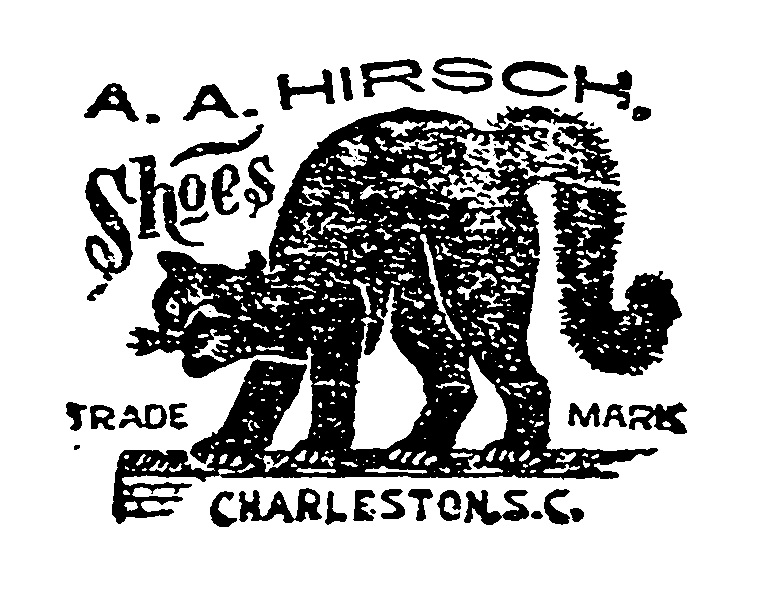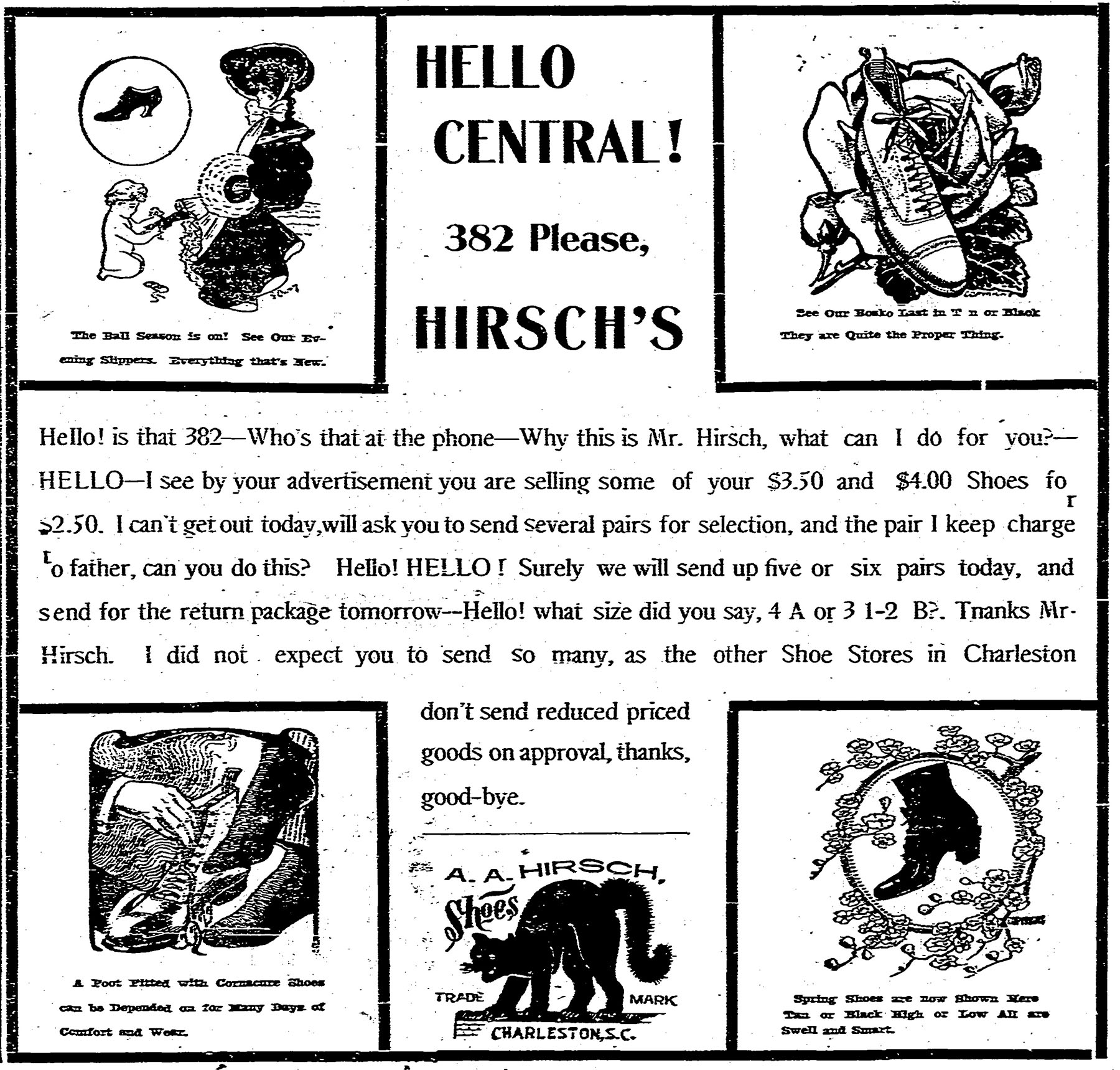
Hirsch’s Shoe Store
Cobbler
c.1900-1913
281 King Street
Charleston, SC 29401
FAMILIES: Hirsch
Alexander A. Hirsch (1874-1927) was born in Charleston to Isaac Willard (1844-1925), the co-founder of Hirsch-Israel Company, and Elizabeth Harris Hirsch (1850-1913). Around 1900, Alexander established his own store, Hirsch’s Shoe Store, at 279-281 King Street. Five years later, Isaac left his business and established a post office location in Hirsch’s Shoe Store. Also known as A. A. Hirsch Shoes, the store prominently featured Alexander’s logo: a black cat arching its back.
In 1913, Alexander closed the business and sold his stock of shoes to Jacob’s Shoe Store but continued to operate an office at the same location for a few months before unveiling Hirsch’s Book Store at 279-281 King Street. Selling books, stationery, toys, pictures, and frames, Alexander employed his brothers George (1881-1948) and Melvin (1888-1972) and rebranded the shop as Hirsch’s Stationary Store in 1917.
In 1921, Alexander went into business with another merchant with the same name: Alex Hirsch (1876-1971). The latter was the son of Louis (1855-1923) and Eva Rosch Hirsch (1851-1908). Alex (1876-1971) had worked in Birmingham, Alabama for many years before moving to Charleston with his wife, Lena (1881-1949), and their children. Around 1919, Alex (1876-1971) founded The Hirsch Co. where he sold bags and bagging materials at 162 East Bay Street. In 1921, Alexander (1874-1927) and Alex (1876-1971) created Automat Upholstery System with the older Alexander (1874-1927) serving as the president and secretary and the younger serving as the vice-president and treasurer. Within a year, the partnership dissolved, and Alex (1876-1971) continued operating at 162 East Bay Street while Alexander (1874-1927) created Southern Cotton Batting Company on East Simons Street. In 1927, Alexander (1874-1927) died at age 48, leaving behind a widow, Miriam Newman Hirsch (1878-1971), and four children.
Main Image: Alexander A. Hirsch’s shoe store logo. Reprinted from The Evening Post, October 28, 1904.

Above Image: Advertisement for A. A. Hirsch or Hirsch’s Shoe Store. Reprinted from The Evening Post, February 21, 1905.